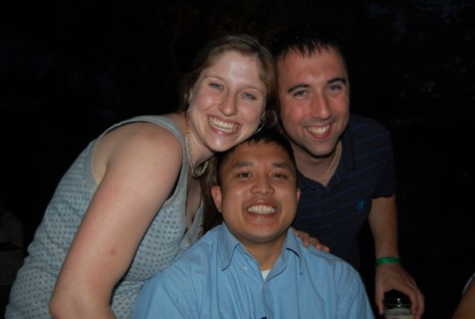Affirmative action, admission preferences being challenged in court
Published Feb 29, 2012
The constitutionality of affirmative action is being challenged before the Supreme Court, leaving university professors and deans with a number of concerns.
Jim Riddlesperger, a political science professor at TCU, said the affirmative action program raised one group of applicants over another to help promote a healthy and diverse set of university students. Although affirmative action involved more than just race, it was controversial because it created “equality through inequality,” he said.
Riddlesperger said that if affirmative action was ruled unconstitutional in the upcoming case, a number of issues would arise, such as the possible devaluation of certain qualities like military service.
The case, Fisher v. University of Texas at Austin, claims the University of Texas discriminated against two students because they were white, according to the legal briefs found on Bloomberg Law. The two students were not admitted to the university.
The Supreme Court is expected to hear oral arguments on Fisher v. University of Texas in October and to issue a decision in the spring or summer of 2013.
Douglas Laycock, a professor of law at the University of Virgina, said the case would try to modify or even eliminate the current laws of affirmative action, last set by the decision in Grutter v. Bollinger. Laycock said that while he believed society had rejected idea of race in admissions, the Supreme Court might still uphold affirmative action as a constitutional measure via a split vote.
Donald Jackson, a professor of political science at TCU, said he expected the Supreme Court to decide in a 5-3 decision in favor of Fisher and against affirmative action.
If the case is ruled in favor of Fisher, expect the court to abolish the policy of affirmative action, Jackson said. However, if a 4-4 decision is cast, the laws of Grutter v. Bollinger would remain as the standard for affirmative action.
Riddlesperger said Grutter v. Bollinger decided that while race may be used as a factor in admission policy, it must be part of a holistic approach. Regents of the University of California v. Bakke, a 1978 case on affirmative action, ruled that quotas, where race is used as a sole factor in admission policy, were unconstitutional.
TCU Dean of Admission Ray Brown also said diversity was essential for higher education. While the university sought a diverse student body, affirmative action played as much of a role in TCU’s admission as any other factor, he said.
The university was more concerned with life experience over factors such as race, Brown said. He said the university would be more likely to seek someone who had a unique background, such as if they are an athlete, from an unusual geographic location or had unique achievements in high school.
Meg Penrose, a professor of law at Texas Wesleyan University, agreed and said affirmative action was needed for diversity and a true reflection of the community.
She said that while affirmative action was generally viewed as a racial topic, there were a number of affirmative action programs, including age, gender, socioeconomic status, religious tradition and family legacy. These cases are just as important as racially-based affirmative action programs in creating diversity but often get ignored.
Penrose, a former member of the admission board at the University of Oklahoma, said diversity created a better environment for learning, offering different perspectives and generating new ideas.



